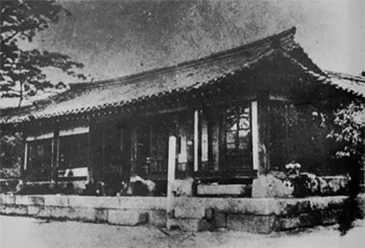SNUH Commemorates 140 Years of Jejungwon, Carrying Forward the Spirit of Medicine for Humanity
-Carrying Forward the Spirit of Medicine for Humanity
The year 2025 marks the 140th anniversary of Jejungwon (濟衆院), the starting point of modern medicine in Korea.
Meaning “to save the people through medicine,” Jejungwon was the nation’s first Western-style public hospital and the origin of the spirit of In-Sul-Je-Jung (仁術濟衆)—medicine dedicated to humanity—that Seoul National University Hospital (SNUH) continues to uphold today.

After Korea opened its ports in 1876, King Gojong and the Joseon government launched national modernization initiatives that included efforts to reform the medical system. As part of this movement, Jejungwon opened in April 1885 as Korea’s first Western-style national hospital. It was established under the Tongni Kimu Amun, the ministry in charge of foreign affairs, and its minister concurrently served as the hospital’s director. Young officials fluent in foreign languages and knowledgeable about international affairs worked as administrative officers.
Because there were no Korean physicians trained in Western medicine at the time, Horace N. Allen, John W. Heron, and Oliver R. Avison, medical missionaries from the United States, served as the hospital’s doctors.
Unfortunately, Jejungwon’s operation faced many challenges, including financial difficulties, political interference from Qing China, and differences in opinion among the medical missionaries. In 1894, during the upheavals of the Donghak Peasant Revolution, the First Sino-Japanese War, and the Japanese occupation of Gyeongbokgung Palace, Jejungwon encountered a severe crisis. To prevent the hospital from being seized by Japan, King Gojong and the Joseon government entrusted its management to Dr. Avison of the American Northern Presbyterian Mission—retaining ownership while delegating its operation.
Dr. Avison managed Jejungwon independently while also pursuing plans to establish a mission hospital owned by the Northern Presbyterian Church. In 1904, he and his colleagues founded Severance Hospital, and in 1905, the Korean Empire (established in 1897) reclaimed the Jejungwon site and buildings from the mission.
The greatest legacy of Jejungwon is the enduring belief that medicine exists to serve humanity—the spirit of In-Sul-Je-Jung (仁術濟衆).
Building on this tradition, Seoul National University Hospital carries forward Jejungwon’s values through its mission:
“To promote a healthy and happy life through world-best education, research, and clinical practice.”
Under its vision of “One SNUH Network – Pioneering the Future of Healthcare for All,” SNUH continues to embody the same spirit of benevolent medicine that began in 1885—alive today in every clinic, laboratory, and classroom of the hospital.